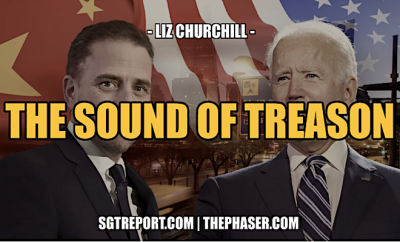 Inspirationboost.com
Inspirationboost.com
Featured
From Anarchy to degeneration- Imposing External Law. China. Extract Two. Part Two: The Path Of The Masters
by Katherine Frisk, ThePhaser.com:
[Editor’s note: To love without a desire to possess it and control it.
In the 21st Century we have become so bound up by the need to possess, to own and control that the seeds freely given to us by the earth are now genetically modified, have a patent on them and are owned and possessed by corporate giants who sell our inheritance back to us.
The rain that once fell with abundance into our streams, rivers and dams, is now owned and controlled by geo-engineers and water is now possessed by corporate giants who sell our inheritance back to us in bottles.
The earth on which we live and which has always been freely available is now owned and possessed by corporate giants, we are forced to live like rats in a cage in overcrowded cities for which we are charged and our inheritance is sold back to us.
We are distracted by shiny toys to keep us busy, all manner of perversions of the mind and the body, trapping us and dragging us so far down into the mud that we have forgotten who we are. We now regard ourselves as Darwinian, mechanized, biodegradable DNA patterns that are also being patented. One day our own offspring will be owned and possessed by corporations who will sell our inheritance back to us.
How far we have fallen from anarchy to degeneration. From self empowerment to slavery. We have not only sold our souls, but sacrificed the earth and our bodies on the altar of the new high priests of our era, who demand that we pay tribute to them as the new demigods of our creation.
They are akin to Anakin Skywalker, no longer content with loving Queen Amidala and having her as his wife, but he must now totally posses and control her as well, only to find himself degenerated by becoming Daarth Vader.]
The religions of China which invite attention here are Confucianism and Taoism. Confucius is generally regarded as a great teacher and founder of an ethical system, a scheme upon which he hoped to build his ideal government, his perfect social order. It was not exactly Plato’s republic, but it was to be the ideal monarchy with an upright citizenship. Ethics, however, is not religion, and there is but little among all the ethical systems of the world which is unique or individual. To know how to live properly among one’s fellow men is not the same as being able to realize God. The two things are fundamentally different.
In the early periods of Chinese history, a form of religious ceremonies and occult practices came to be known as Taoism. Its inception is shrouded in obscurity. We believe it dates back to extremely remote periods, when some real Master gave it out as an elucidation of the Sant Mat of his time. But when it first appeared in history, it had already undergone the usual degenerative changes. In spite of that fact, it still has some of the earmarks of .the fundamentals of the ‘Masters’ system. All scholars agree that Tao means the Way. But this Way has been badly obstructed by the usual rubbish of ceremonies and superstitions. Then came Lao Tse, a great philosopher and reformer, who gave to Taoism somewhat of its his own interpretation, He appeared to see in it the proper and more vital meaning. Lao Tse wrote a famous book Tao Teh Ching. This book is an exposition of the Way according to Laotsean understanding. In it are echoes of many of the concepts of the Eastern wisdom, chief among which is the meaning of Tao itself, the nad-bindu of the Vedas, the divine shabd the modern saints.
It will be noted that Lao Tse was not satisfied with the mere ethics of any system. Ethics can never constitute the Way. By ethics no man can escape the eternal awagawan, the coming and going in regions of matter. To gain the heavenly kingdoms, escaping forever from material worlds, the student must leave the walks of men and go where ethics have no meaning. He must transcend the field of ethics, for ethics has to do solely with human relationships. In the regions of light, where God .is to be realized, there IS no ethics, no right and no wrong-there IS nothing but pure love.
Lao Tse had a great disciple who wrote the following beautiful words;
“The perfect man employs his mind as a mirror. It grasps nothing; it refuses nothing. It receives, but doesn’t keep. Thus he can triumph over matter, without injury to himself.”
The idea is that when we become too closely bound up With matter we descend to its level, much to our own injury. This brings ‘to our attention the great precept of the Indian master.svairagya; meaning complete detachment from the world, while still living in it. Do not allow it to cling. to you. Do not allow yourself to be dragged down into the mire of It. Keep the self above all worldly entanglements, like the lotus flower, which holds its beautiful head above the muddy waters, even though its roots are buried in them. This is the wu-wei of the Chinese sages, the doctrine of the non-assertion of the self. There can be no doubt but if we could get down to the pure and original Taoism, we would find a system very closely allied to, if not identical with that of the Masters.
Taoism emphasizes the doctrine of karma. The Chinese term for karma is yin quo. Nothing in all nature is more certain than the fact that no single thing or event can stand alone. It IS attached to all that has gone before it, and it will remain attached to all that is to follow it. It was born of some cause, and it must be followed by some effect in an endless chain. That which is set in motion any any individual, be that individual man, dog, tree ·or nver, must eventually return to that individual. It IS a law.of nature. Attention and love are the means of connectmg us with objects external to ourselves.
Whatever we desire begins at once to travel toward us unless a stronger desire from a different source attracts it. Everything in the universe is subject to Newton’s laws of motion. By desires we are bound to objects of desire. This is why the complete detachment of self from every worldly object is necessary. It avoids bondage to those things. This is why we should love nothing with a desire to possess it. The moment we do so, we enter the first stages of slavery. We should not even desire rewards for our actions. He who looks to rewards will become a slave to such rewards. So long as a man craves rewards, he is bound to those rewinds, and yin quo is his master.
From complete vairagya, perfect mental detachment, one enters nie-pan, the blessed nirvana. He then becomes one with the Tao, the eternal whole. So Tao means not only the Way but the supreme goal as well.A man must attain that state of mind which is like the sun, shining upon all alike, yet asking nothing in return. The soul lives forever by giving, not by receiving. And this is the grand paradox, not only of Taoism but of all philosophy-you get most by giving most. Conversely, by receiving much you impoverish yourself. By selfish accumulation you become bankrupt. As Emerson says, “You run in your own debt.” For, in the long run, you can never get something for nothing. Every farthing must be paid. The law of balance in the moral and spiritual realms is just as inflexible as the law of gravitation. To give and give only, not once thinking of rewards, is the beginning of immortality. No man becomes a Buddha, a Kakusha, a Tathagata or a Bodhisattva by fleeing from pain or by seeking comforts, or by demanding rewards. Accept alike all that comes to you, and go on giving, be indifferent alike to reward or blame. Only give. And all the while you are giving, make the mind one with the Tao, the universal one, whose musical vibrations fill the universe. Of course, that universal one is none other than the audible life stream, the creator and preserver of all. It is written:
When every phase of our minds shall be in harmony with the mind of Kakusha [the Sat Purush] there shall not be one atom of dust [of our dust] that shall not enter into nie-pan.
This is a fathomless precept of wisdom. That noble sage taught that man shall not glory in his own enlightenment while he looks down upon all others who .are struggling in pain and ignorance, holding himself upon a pinnacle of self-righteousness.
For your true self is the whole of life, and the wrongs of all others are your own guilt. Do not blame men when they err, but purify your own heart. Do not be angry when the whole world forgets the law and ceases to abide by the Tao. Look for the fault in yourself. The root of all evil is in you.
Can anyone set a higher standard? It is an excellent interpretation for the high path of the Masters and that is why we emphasize it here.
Next:
Anarchists and The Golden Age- Extract One: The Path of The Masters












